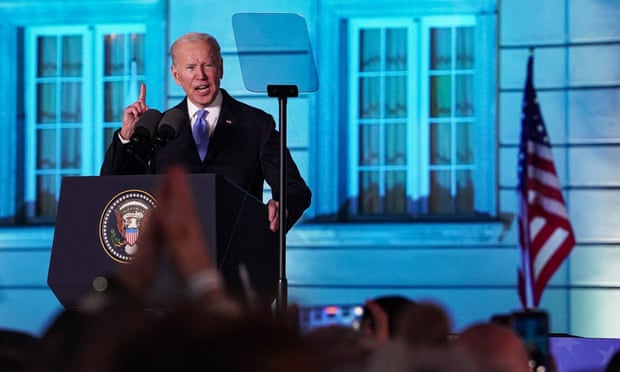1 Russia-Ukraine Conflict and History Ends Again?!
However, with the recent continuous decline of Western democracy, Fukuyama grew increasingly pessimistic about his theory and set out to revise it.
Now, as the Russia-Ukraine war wages on, Fukuyama’s position has again undergone another 180-degree turn. He has returned to the public podium to enthusiastically trot out his end of history theory. This time, Fukuyama asserts, “Russia is heading for an outright defeat in Ukraine.” He further predicts that this outcome will have a long-term impact on global history: A Russian defeat will make possible the “new birth of freedom” and allow the U.S. to shake off its fears about the declining state of global democracy.
One Russia-Ukraine conflict and history ends again?! The answer is no.
First, it is premature to assert, “Russia is heading for an outright defeat in Ukraine.” Needless to say, the disparity in military power between Russia and Ukraine is vast. The U.S. and Europe are only paying lip service to supporting Ukraine. They are unwilling to get dragged into a direct military conflict with Russia. Not even willing to establish a no-fly zone, they only resort to sanctions to deter Russia. Although the performance of the Russian military falls short of expectations, Russia's resolve to reach its set war aims is firm and unwavering. Canadian newspaper The Globe and Mail believes that, in light of the West’s current response to the Russia-Ukraine conflict, the West is currently “paving [President Vladimir Putin] a road to victory.”* Even though Western sanctions have put a lot of pressure on Russia's economy, even England’s newspaper the Financial Times admonishes, "Do not think the economy will fail to function as long as the political will in the Kremlin exists to soften the impact of the measures.”*
Second, the Russia-Ukraine conflict will not save Western democracies from their trend toward decline. The state of U.S.-style democracy is symbolic of the decline across Western democracies. Not only is there a consensus on this among Western academics, but Fukuyama himself is also acutely aware of it. In an article he wrote for The New York Times Jan. 1 this year, he admitted, “The American model has been decaying for some time. Since the mid-1990s, the country’s politics have become increasingly polarized and subject to continuing gridlock, which has prevented it from performing basic government functions like passing budgets. There were clear problems with American institutions — the influence of money in politics, the effects of a voting system increasingly unaligned with democratic choice — yet the country seemed to be unable to reform itself.” He further wrote, the Jan. 6, 2021, riots on Capitol Hill demonstrated “America’s credibility in upholding a model of good democratic practice has been shredded.” As Fukuyama points out, the origin of Western democracy's decline is internal. Even if “Russia is heading for an outright defeat in Ukraine,” that clearly cannot cure Western democracy of its chronic disease.
Third, Fukuyama ignores China as an embodiment of an example successfully negating his end of history theory. When Fukuyama first put forth his end of history theory, he believed the U.S. had already won all ideological disputes; therefore, it was up to countries like China to take their only realistic option and adopt the Western way of thinking when transitioning to modernity. Globalization meant developing along this single direction. Yet in the ensuing 30 years, China has not emulated the West, and has begun to unswervingly find its own path. Through continuous exploration, China has paved its own modern path, creating a new model of human civilization. This expands the options developing nations can choose from in their modernization. It models a new option for nations that want to both accelerate development and maintain their independence.
It can be said that China has used facts to proclaim thoroughly debunked the end of history theory and the historical view that it is the fate of every country to, in the end, solely follow the Western system’s model. Even in the U.S., it has become the general consensus among political and academic circles that the U.S. has completely failed to mold China. As long as 1.4 billion Chinese resiliently stand tall in the East, history has not seen its final chapter.
In fact, not only has history not ended, but it may have begun to march in reverse. Fukuyama’s end of history theory posited that with the dissolution of the Soviet Union, the era of great power conflict was undoubtedly over. However, after the Russia-Ukraine conflict broke out, the West has strangled the Russian economy. This not only makes clear that not only does great power conflict ensue, but that Western politicians are also even depicting it as “a struggle between democracy and authoritarianism.” Since Fukuyama was cheering so happily at end of the Cold War when he proposed the end of history, he must now soberly face the reality that the current clash between Russia and the West shows that the Iron Curtain of the Cold War has once again fallen across Europe. Ian Bremmer, president of the U.S.-founded Eurasia Group, believes that at the outbreak of the Russia-Ukraine conflict, the world is "on the road to a new Cold War, there is now no turning back."* Akihiko Tanaka, a Japanese scholar of international politics, also believes that U.S. President Joe Biden's policy toward Russia is a continuation of “Cold War-style" and that "the world will return to the Cold War.”
We took note when Fukuyama came to regret his initial proposal of his post-Cold War end of history theory. Now, the question is, at what point will Fukuyama be ashamed of promoting his end of history theory again?
*Editor’s Note: These quotes, accurately translated, could not be verified.


